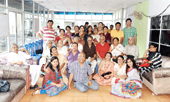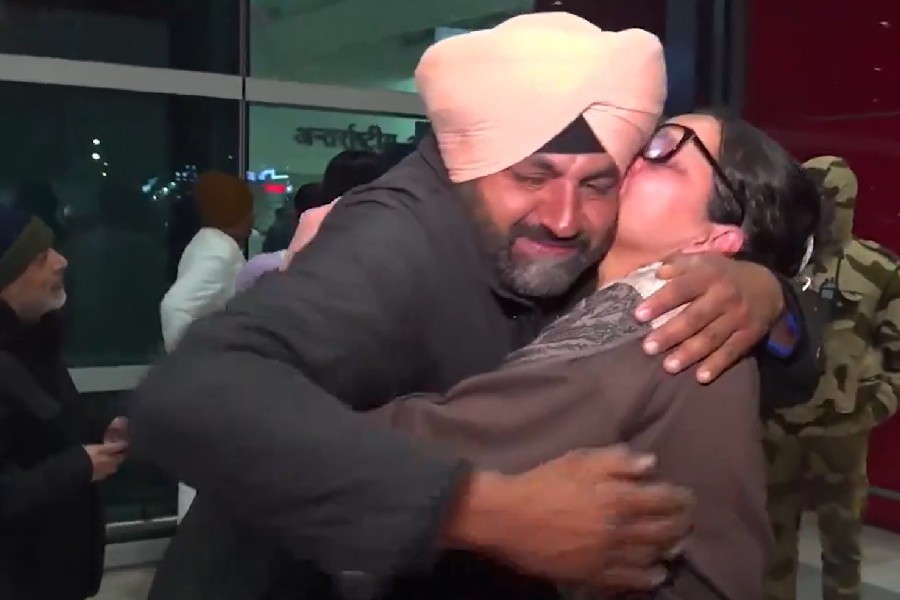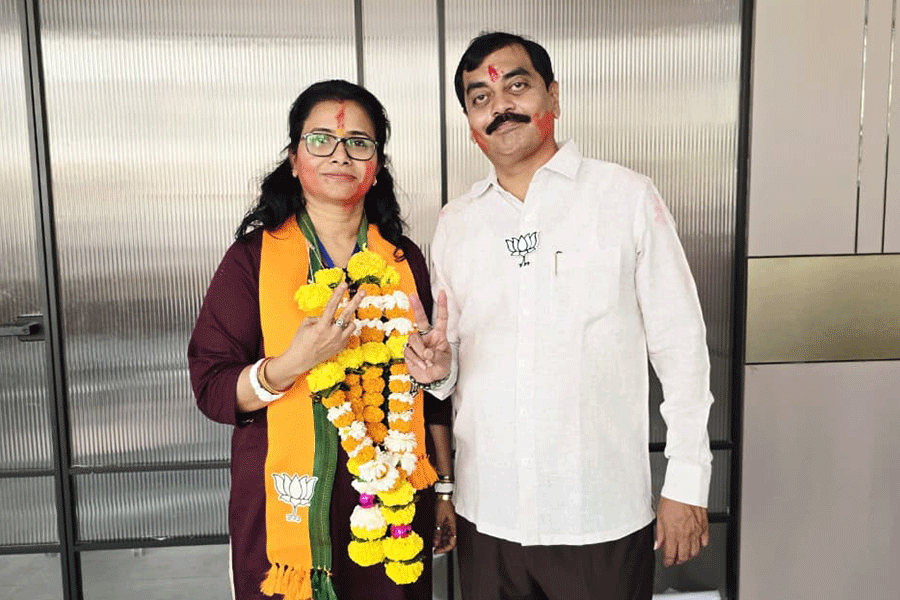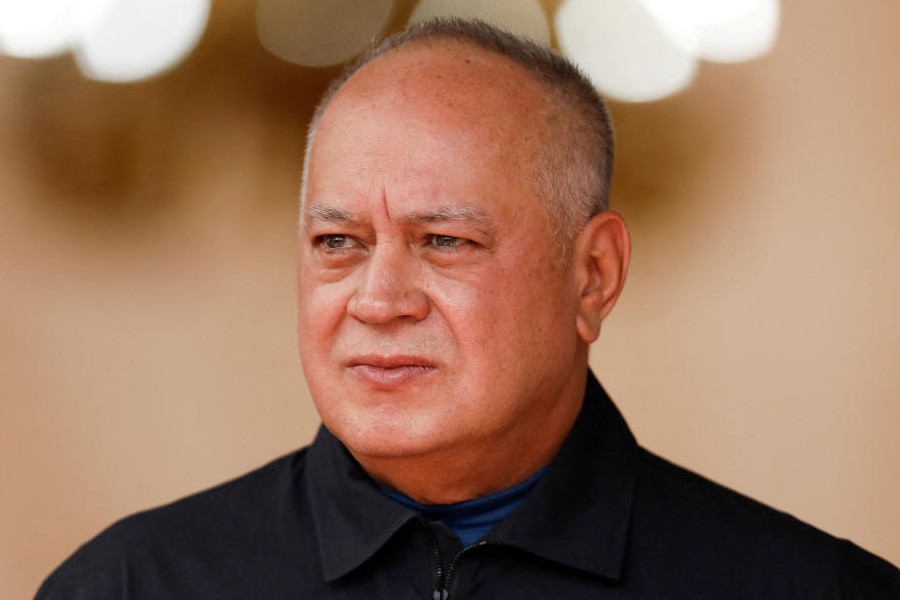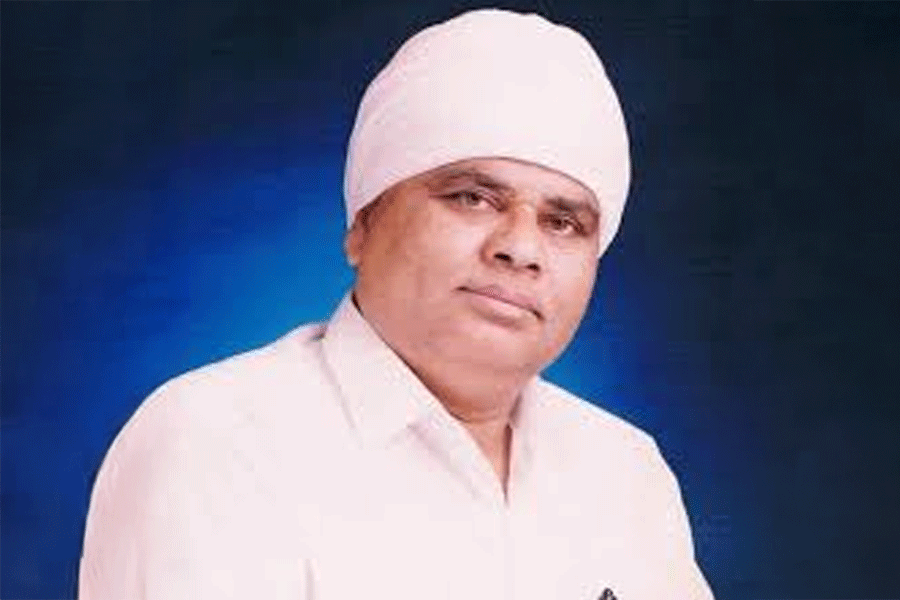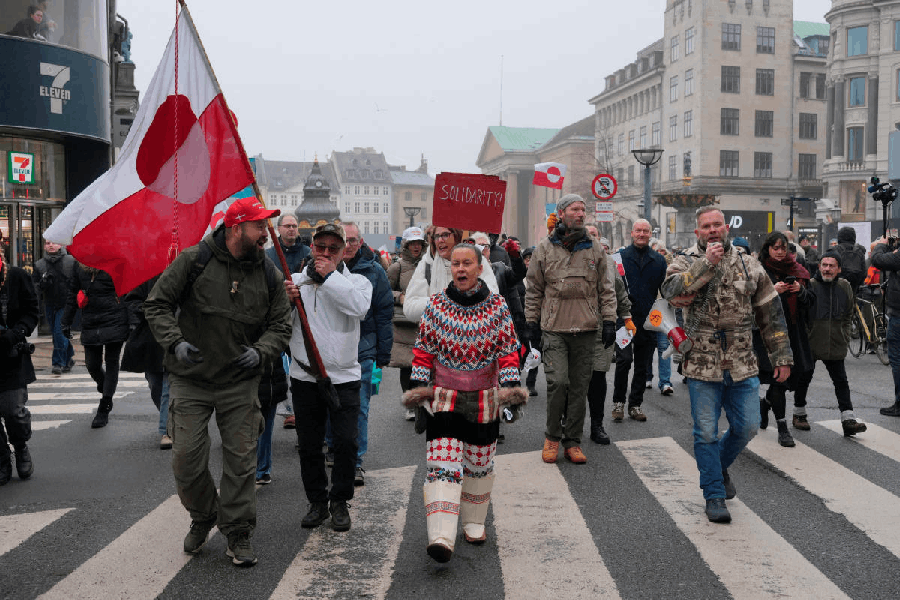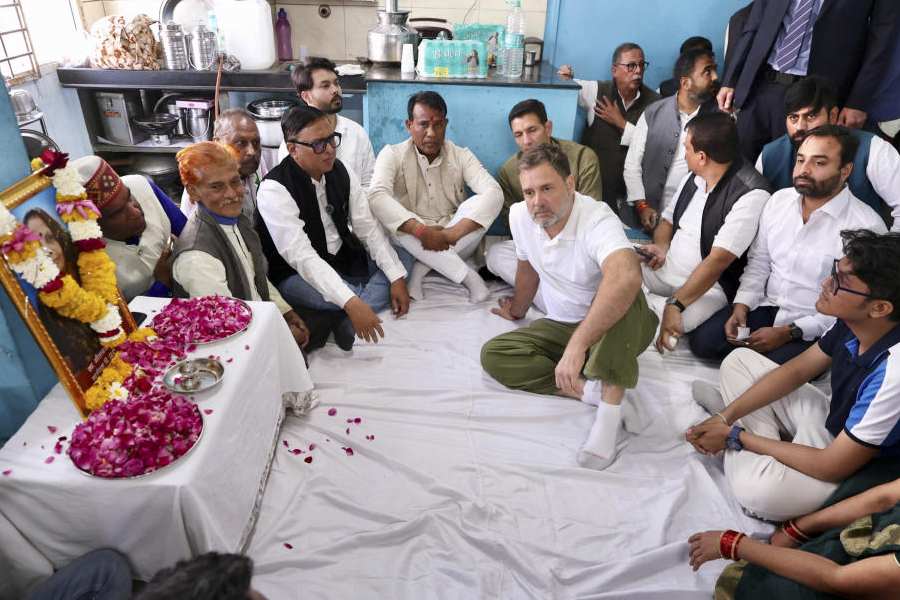 |
| The gathering at Dalhousie Institute on Sunday. (Anindya Shankar Ray) |
Shared memories can bring together people who had once, 40 or more years ago, lived together in jute mills like one big family. There, within the confines of these huge, almost self-sufficient and complete mill compounds, the children of neighbours could become one’s best friend, and their parents one’s favourite “aunt” or “uncle”. Even when they meet after decades, the long separation is forgotten in an instant, and the years past become more real than the present.
About 40 people, who were once residents of mainly two jute mills — Gourepore and Nuddea — got together on Sunday afternoon at Dalhousie Institute just for the pleasure of meeting long-lost friends once again, to catch up on family news, or even exclaim on how age has caught up with one who was a toddler when last seen aeons ago.
Loud chatter, shrieks and whoops of laughter filled the hall where they met for the lunch organised by Subrata Dasgupta, whose father, Jagannath, belonged to the first generation of Indian officers in jute mills, ruled in their heyday by Scotsmen, most of whom started returning home in the late 1960s. Subrata’s elder brother, Debabrata, in his late 60s, recounted how Jagannath, already employed with a jute mill, demanded the facilities enjoyed by Europeans, when he was offered a higher post with the managing agents, McNeill & Barry, usually the reserve of white employees.
Both brothers waxed eloquent about the beauty and orderliness in the jute mills, the sprawling quarters, tennis courts and swimming pools that were beyond the wildest dreams of middle class Bengalis like themselves. The camaraderie among the residents was remarkable. “Our parents were universal ‘dada boudi’. My father’s single colleagues would drop by and they became our ‘kaku’.
“In 1960, when there were enough Indians, a culture group named Baishakhi was formed and that became very popular. Nostalgia is a big thing for me. This is the third time all of us are meeting.” His sisters, Shibani and Krishna, said they were both active members of the culture club.
What brought them together after ages of separation was a series of articles on dilapidated jute mills that had seen better days published in The Telegraph about three years ago. Mail was exchanged and it was like a family reunion.
The most senior guest was Sankar Prasad Kundu, 93, who was with Nuddea. His daughter, Aditi Ghosh, remembered the kitchen and season flower garden in front of their quarters, although she was just 13 when they left in 1976.
Chanchal Banerjee had come all the way from Delhi just to attend this lunch. Amal Kumar Guha, 61, said he was born in Nuddea and his father was the first qualified Indian engineer to join a jute mill. Sutapa Roy’s father was personnel officer at Nuddea and she remembered how his friend, the litterateur Samaresh Basu, would drop by. These elderly men and matrons didn’t mind a second lease of youthfulness.

